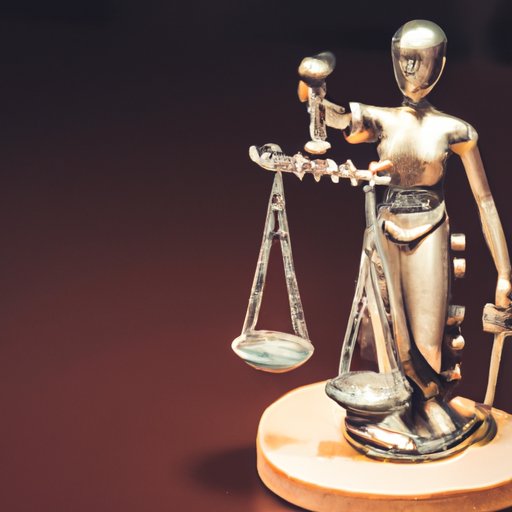
Did You Know You Have Rights?
It’s not uncommon to hear stories of people who have been taken advantage of because they didn’t know their rights. While every country has different laws and regulations that protect its citizens, many people are unaware of these rights and protections.
The purpose of this article is to educate readers on their legal rights and empower them to advocate for themselves. We’ll cover 10 surprising rights you probably didn’t know you had, explain the benefits of knowing your rights, explore specific laws that protect certain rights, discuss situations where knowing your rights is crucial, and explain basic human rights everyone has.
10 Surprising Rights You Probably Didn’t Know You Had
Did you know that you have the right to a free education in many countries around the world? Or that in the United States, you have the right to refuse a police search of your car during a routine traffic stop? There are many lesser-known rights that most people don’t know they have, but that can be incredibly important to understand.
One surprising right is the right to privacy. This includes the right to confidential medical care, as well as the right to refuse to answer questions about your health or personal life without consequences. Another lesser-known right is the right to know what is in your credit report and to dispute any errors.
It’s crucial to understand these rights and protections. By knowing your rights, you can avoid being taken advantage of and protect yourself from unlawful actions.
Why Knowing Your Rights Can Protect You: A Comprehensive Guide
Understanding your legal rights can help you in a variety of situations, whether it’s in your interactions with law enforcement, your workplace, or even your personal relationships. When you know your legal rights, you can protect yourself from abuse, discrimination, and unfair treatment.
For example, if you’re pulled over by a police officer, knowing your rights can protect you from unwarranted searches and seizures. You have the right to remain silent, the right to refuse a search of your body or car without a warrant, and the right to an attorney if you’re being arrested.
Knowing your rights can also help you in the workplace. You have the right to a safe work environment, the right to fair pay, and the right to fight against discrimination or harassment.
It’s important to research your specific rights in different contexts so that you can properly protect yourself. You can find many resources online or contact legal professionals if you need help.
From Freedom of Speech to Equal Pay: Understanding Your Legal Rights
Throughout history, various laws and regulations have been put in place to protect specific rights. For example, the right to free speech is protected under the First Amendment of the United States Constitution. This means that the government cannot limit your right to express yourself, even if they disagree with you.
Another example is the right to equal pay. In the United States, the Equal Pay Act requires that men and women be paid equally for equal work. This includes equal pay for equal skill, effort, and responsibility.
It’s important to understand what laws protect different rights and how these laws work. This knowledge can help you advocate for yourself and make informed decisions.
The Importance of Knowing Your Rights in Everyday Life
Knowing your rights can be especially helpful in everyday life situations. For example, if you’re pulled over by a police officer, knowing your rights can help you remain calm and protect yourself from unwarranted searches. Additionally, if you’re experiencing discrimination or harassment in the workplace, knowing your rights can help you fight back and prevent future mistreatment.
It’s important to remember that everyone has rights, regardless of their race, gender, or social status. If you feel that your rights are being violated, it’s important to stand up for yourself and seek help when necessary.
If you believe that your rights have been violated, you can report the incident to the appropriate authorities or contact a legal professional for help.
Did You Know? Your Basic Human Rights Explained
Basic human rights are the inalienable rights that every person is entitled to simply because they’re human. These rights include the right to life, liberty, and freedom from slavery and torture.
Other basic human rights include the right to fair and equal treatment under the law, freedom of opinion and expression, and the right to education.
It’s important to note that these rights are not just suggestions or ideals; they’re legally recognized protections that all individuals are entitled to. We encourage all readers to learn more about the Universal Declaration of Human Rights and to become advocates for human rights in their communities.
Conclusion
Knowing your rights and protections is crucial to ensuring your safety and wellbeing. We’ve covered 10 surprising rights you may not have known you had, explained why understanding your legal rights is so important, explored laws that protect specific rights, discussed everyday situations where knowing your rights is helpful, and offered an explanation of basic human rights.
We urge all readers to seek out more information about their own rights and to empower themselves through knowledge. Remember that you have the right to protect yourself and that you’re entitled to fair treatment under the law. By advocating for yourself and others, you can help build a stronger and more just world.





